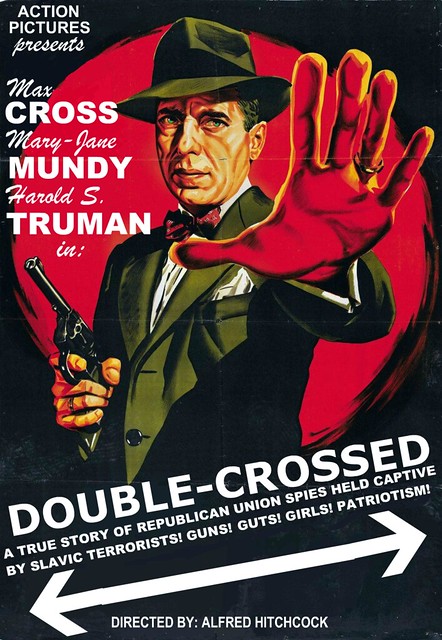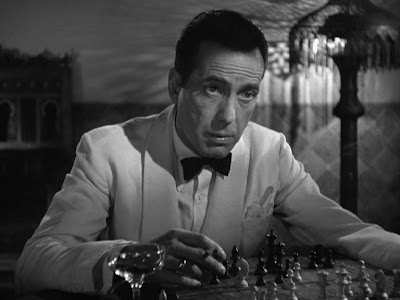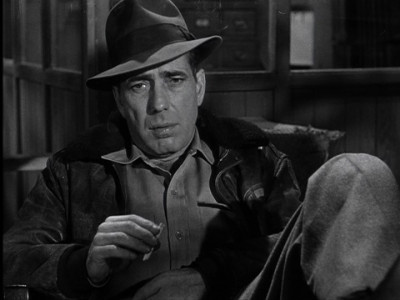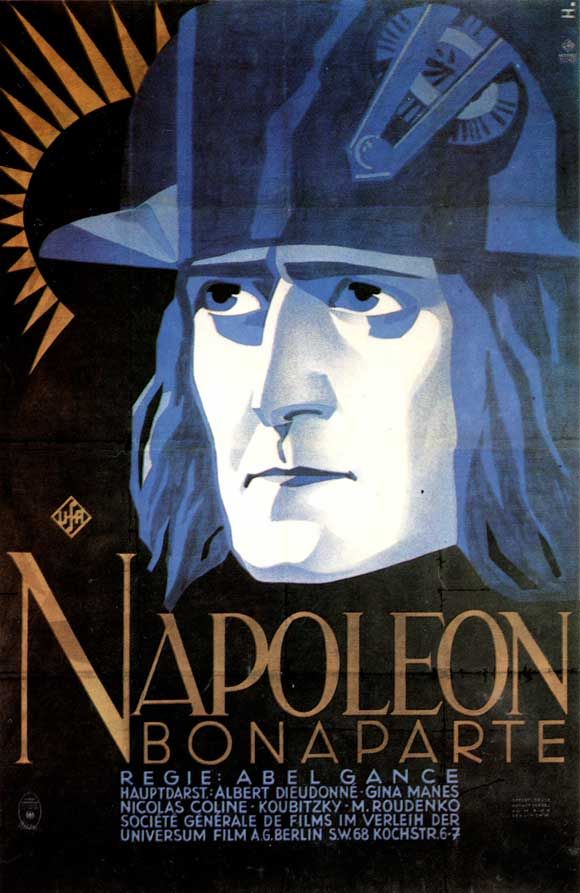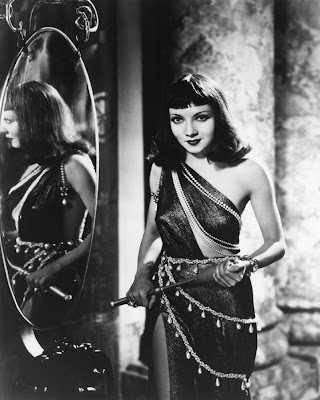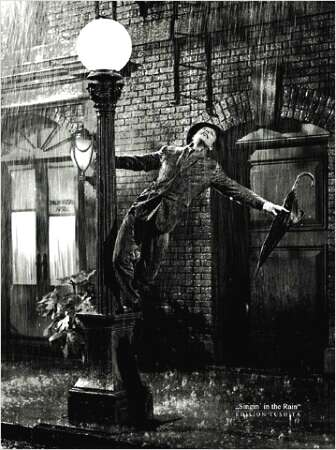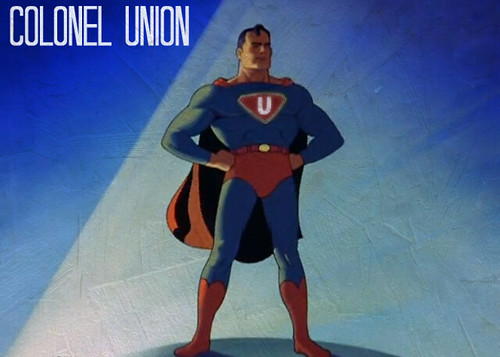Cross was pure cinema gold from that point on, and nothing he made did less than spectacular at the box office. He did two Action Pictures detective movies with Harry Truman in 1949,
Lake's Ten and
Murder, Murder, Murder! Then, he joined forces with Truman and Teddy Wilhelm again for the 1950 "cinematic masterpiece"
Double-Crossed, the "true story" of ORRA agents infiltrating a Slavic neighborhood in Shicagwa in the 1920s. They get caught and end up being held hostage for 29 days as legions of government agents surround the shanty town until the hostages finally break free and spectacularly massacre every single person in the village.
Double-Crossed was the first for up-and-comer actress Mary-Jane Mundy, the unusually voluptuous (by Union standards) actress who played Cindy Klausen, the love interest for Cross's character in the movie. She became the most popular leading lady in the Union over the next several years, and eventually began a long affair with none other than Chuckie Oswald himself, and she would even sing "Happy Birthday, Comrade-Patriot Oswald" in 1956 at the Capitol Builiding, causing a storm of controversy...
SUMMARY:
In the end, Cross, Truman, and Mundy became icons of a generation. The entertainment world of the 1940s-50s in the Union was centered around those three people. There were other popular stars, such as Gabriel Henrikson and Lewis Cartwright (who both starred in the 1949 hit
One Flew Over the Finch's Nest, about inmates at an Ohio Country reeducation camp), but in the end, Cross was king. The Pennsylvania Jack series was so popular that a series of comic books was created that would continue for years.
Union film was extremely violent and graphic, unhesitatingly showing blood, gore, death, destruction, and murder. The films were absolutely stuffed with propaganda, both of the open sort and subliminal. The Taft Code, the morality code used in the Union by law, made sure cursing was not done, and (unlike Europe) did not allow nudity of any sort (dresses cut above the knee were considered "harmful to children," but low-cut dresses were usually permitted to a certain degree). The only movie that contained the word "damn" in the entire "Golden Era" of 1940s and 50s was the 1951 film
Spirit of 1801, where it was overlooked because it was an actual quote by Reverend Burr himself.
FOREIGN CINEMA:
Movies in the Columbian sphere and in the rest of the world were much less heavy in propaganda (though there was still quite a bit) and focused more on stories. Romantic comedies first became popular in Virginia, and then spread to Europe. War movies were still common fare, but many of the countries hadn't been at war for so long that most of the films had to be about the Napoleonic Wars. A few movies were made in the South celebrating the Revolutionary War and their longstanding friendship with the French, but these films were not really popular, as "the Spirit of '76 had been stolen by the Union. One could not even look at the Thirteen Colonies flag without thinking of the Manifest Destiny Party Blood-Stained Banner," said Georgian film critic Arthur O'Reilly.
The first European mega-hit (popular all over the world) was the 1940 Imperial classic
Napoleon Bonaparte. It was even popular in places like Prussia, where the film's depiction of the Prussians opposing Napoleon as "the noble and worthy foe" proved popular. It featured the most-ever extras in a film, with over
forty thousand "soldiers" appearing in a scene reenacting the 1800 Battle of Marengo in full-scale on the site of the actual battle.
European cinema remained more artistic, in a way, than the American and Columbian variety, with less emphasis on action and more on story, techniques, and expensive sets. Imperial cinema was also much more open as to what could be depicted in a film without there being riots, window-smashing, and arson in the streets. The first curse word to ever be said in a film was in the 1932 French-language movie
Gone With the Tide. The first instance of nudity (though it was simple historical accuracy) in a mainstream film was the 1939 Spanish-produced Ancient Egyptian epic
The Last Pharaoh, where Cleopatra was shown partially nude in one scene. Imperial cinema became quite adept at making fairly historically accurate ancient and medieval epics, such as close to 200 movies about the Roman and Greek Empires made in the 1930s, 1940s, and 1950s. Many of them featured thousands of extras and huge sets.
Still from the 1951 Imperial movie Bread and Circuses
French actress Claudette Colbert as Cleopatra in The Last Pharaoh (1940)
Musicals were also very popular in Europe, especially in Prussia.
Singend im Regen, "Singing in the Rain," was a world-wide mega-hit in 1946. Since it contained almost no plot whatsoever and almost totally focused on singing and dancing, it was popular all over the world even if the audiences couldn't understand German. Even the Union was pleased with it, thought they did edit out "scandalous" backup dancers.
Still from the famous Prussian classic Singend im Regen (1946)
Musicals experienced a huge revival in the Columbian sphere in the late 1940s and early 1950s. Musicals had been out of style since the 1910s, as people thought they had been done to death, but new styles in music and the rise of the greaser culture made them popular once again. The 1948 Carolinian classic
The Barber Shop Singers brought back fond memories of the 1920s for many people, and it was one of the rare Southron films allowed "virtually" unedited into the Union theaters, though it did get an advisory warning of "foreign propaganda idealizing the hell-hole of the South."
Johnny Reb was a 1948 spoof of the Union's xenophobic and revanchist mentality, featuring popular folk singer "Alabama" Bernie rd as folksy "hillbilly" Billy-Joe Lee going up north to New York City to collect inheritance from a deceased Union uncle. American characters would constantly try to murder him in various slapstick ways, always resulting in hilarity, such as knife-wielding "coward bully-cad and thief" ORRA officer Ted Luther, an obvious parody of Joey Gobells, trying thirty times throughout the course of the movie to stab Lee.
The South did produce pure propaganda films, however, like the Union. The most popular and well-known was the 1953 masterpiece
Jack Iron, an obvious parody of Joe Steele. The plot shows him ruling over the fictional North American country of the "Northern Republic." This film was released during the midst of rising tensions in the Cold War, and it featured an ending out-of-character scene with the cast of the film begging "for sanity to return to our Northern neighbor." The film was absolutely loathed by the Union, and reels were bought for Remembrance Day 1953 solely so they could be burned to make a political point.
Still from Jack Iron (1953)
A RUMP officer throws Southron books and movie reels into a fire (Remembrance Day, 1953)
OTHER MEDIA:
Comic books took off when Action Pictures created Action Comics in 1949, launching the best-selling Pennsylvania Jack adventure comics. Soon, other characters were created, such as The ManBat, Lone Rider, and the Blue Phantom. In 1951, to peddle even more propaganda to America's youth, Action Comics created Colonel Union, a dashing super-powered "hero" who would fly around and pulverize Inferiors.
"Up in the sky! It's a bird! It's a plane! No! It's Colonel Union! Able to leap tall buildings in a single bound and seek out treacherous unpatriotic vermin no matter where they hide, Colonel Union fights for truth, justice, and the way of the Party!"
-Introductory panel to Colonel Union Issue #1
Southron comics were not very interested in "super-heroes" at first. Detective comics were far more popular, but the adventures of "Captain Columbia" and "Lady Virginia" did grow a fanbase in the mid-1950s as the Cold War heated up.
).
I may also upload a couple posters if I can.
